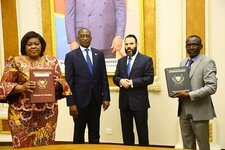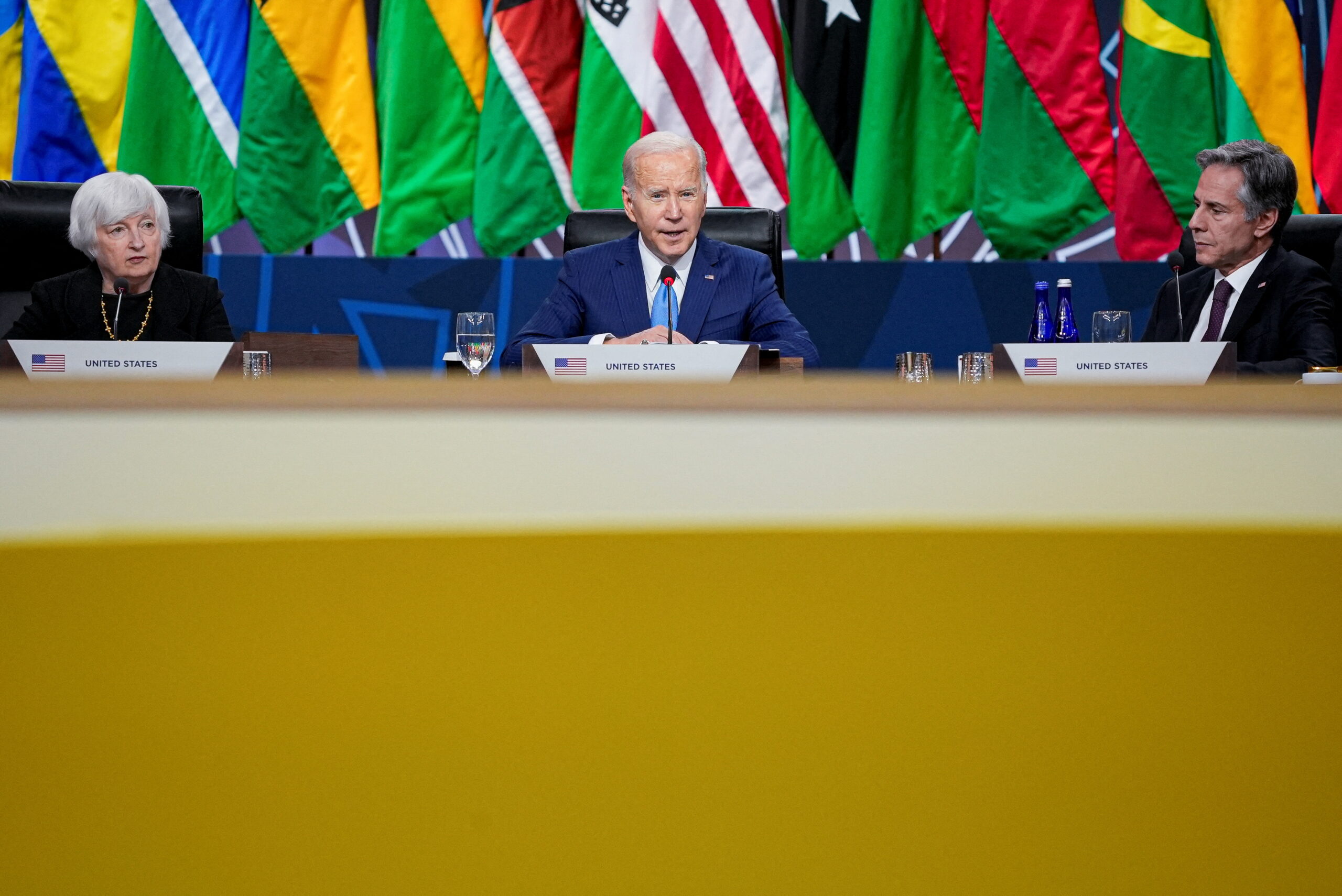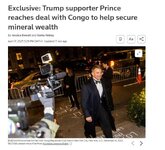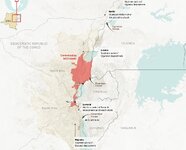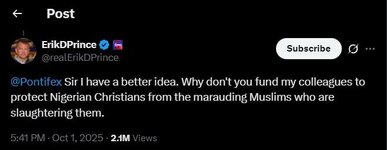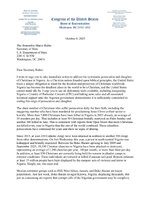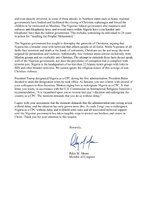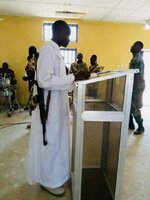Per usual wrong on all counts, Israeli businessmen have been running a significant chunk of the Congolese mines since the days of Mobutu. Jewish tycoons started moving into the Congo during the 60s and eventually became the main players during the 90 Congolese Civil War, spearheaded by Maurice Templesman who at that time was one of the main financiers of the US Democratic Party. It's all Chabadniks, big names are Oppenheimer, Mendell, Forrest, Blattner, Hertzov, Gertler, Steinmetz etc. Nearly all have dual citizenship, Canadian, US, Russian and more. Chabadniks get access to the Congolese mines in exchange for high-level Israeli defense and intelligence assistance, and they do business with everyone including China.
US has been getting more proactive about self sufficiency and fool-proofing the supply chains, especially those supply chains related to critical infrastructure. In short the Trump Administration wants to take over control over the source of many raw materials. Not controlling the supply change at the source became a concern during the Trump Administration 1.0 already.
Dan Gertler with current Congolese president Tsishekedi
View attachment 20380
The most notable Israeli tycoon in Congo is Dan Gertler, Chabadnik billionaire. Owns the Emaxon Finance Corporation/ DiamondWorks, which owns/owned majority rights in many of the diamond, lithium and cobalt mines in Congo. The kosher Chabadnik gang owns a flurry of mining companies operating in Congo and routinely changes names and numbers. Some of the bigger companies are Dan Gertler International (DGI), Steinmetz Global Resources, International Diamond Industries, NIKANOR and Global Enterprises Corporate. To move money and goods Gertler especially uses a complex network of interconnected companies, often registered in offshore tax havens and involved in India, Russia, Belgium and the United States.
Easing sanctions on Dan Gertler gives Washington the opportunity to show that its sanctions policy toward Africa can be effective.

www.atlanticcouncil.org
US wants and will take over the mines. Gertler got sanctioned in 2017 under the Trump Administration 1.0 (legal framework provided by Magnitsky Act), and Gertler and others were forced to sell a significant amount of the mines. Unexpectedly the Chinese grabbed the opportunity and starting ramping up operations after that. Biden enforced sanctions relief during his Administration. Most of these kosher tycoons still live part time in Congo, Gertler for one lives in the most expensive villa in Lumumbashi, Katanga state. His kosher meals get flown in from Kinshasa at 23 000 USD a flight. Gertler's personal rabbi Shlomo Bentolila is the highest Chabad representative in Central Africa and part of the Commitee of the Jewish Community in Kinsasha. He continues outstanding ties with Congo's political elite as does the Jewish community. When Bentolila son Binyamin had his bar mitzvah then President Joseph Kabila was present at the ceremony.
Congo due to its resources will play an important role in the US' geostrategy. Eric Prince's organization signed a deal with the Kinshasha government to acquire mining rights in return for security and low key military aid against the M23 movement. Clear sign that Tsishekedi is aligning with the US, and this formal agreement will be followed up by an official Congo - US mineral deal.
View attachment 20379




